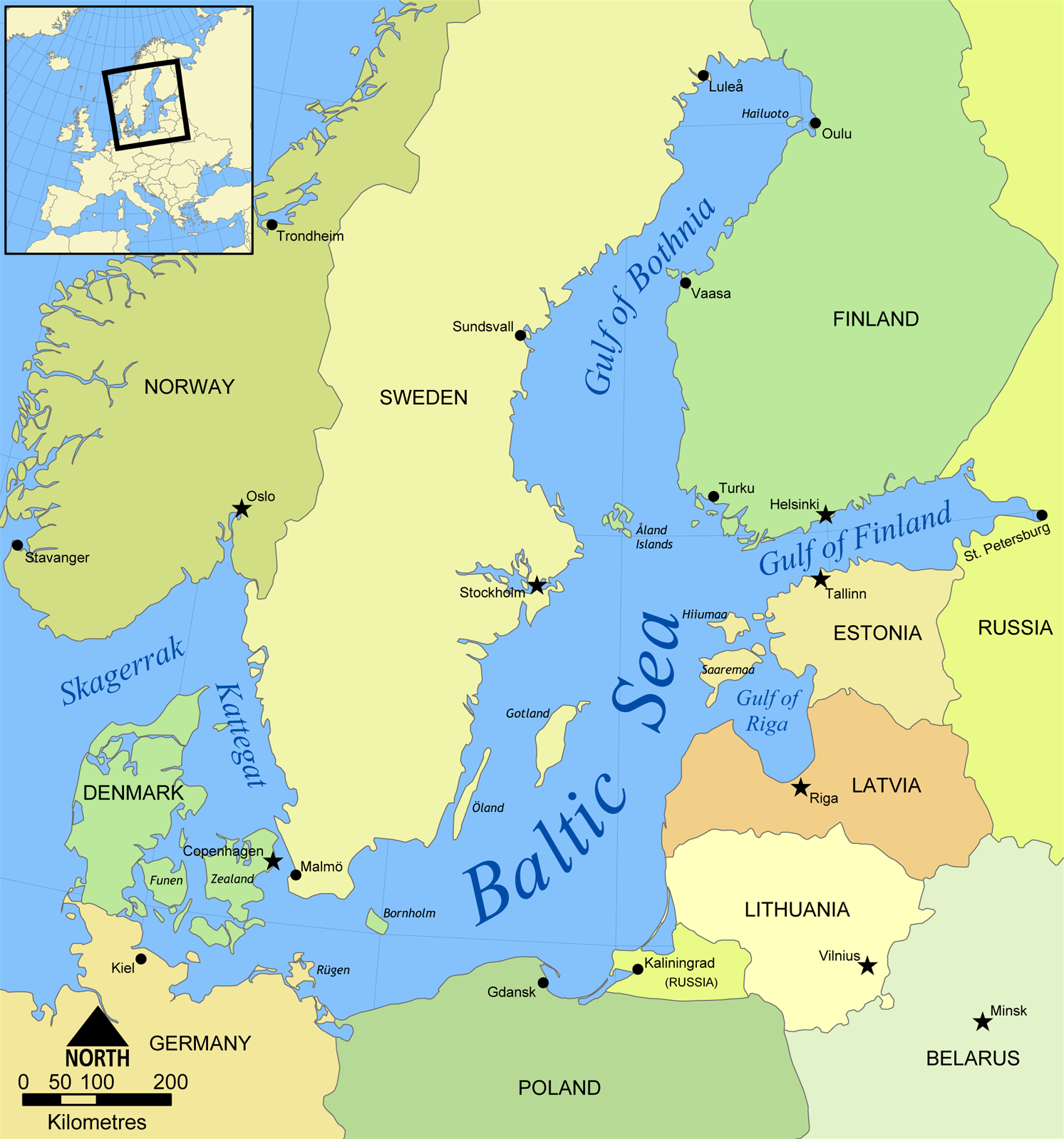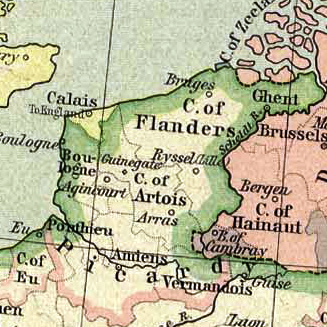|
Hans Düringer
Hans Düringer was a clockmaker from Nuremberg in Germany who died 1477 in Rostock. His most famous works are *the Gdańsk Astronomical Clock in St. Mary's Church, Gdańsk 1470 *the Rostock Astronomical Clock in St. Mary's Church, Rostock 1472 which belongs to the so-called "Baltic region, Baltic clock family ". According to the tradition, after Düringer made the clock of Gdańsk, the authorities had him blinded so that he couldn't build another such wonder. On a final inspection he destroyed the clock and escaped with the help of his daughter. After a long journey Düringer came to Rostock where he was welcomed with open arms. The authorities of Rostock offered him a deal: he could stay in Rostock for free for the rest of his life when he was willing to build a new astronomical clock in St. Mary's. Under his supervision, the new clock was built. In 1477 he died and was buried in Danzig. References 1477 deaths German clockmakers German artisans Businesspeople from Nu ... [...More Info...] [...Related Items...] OR: [Wikipedia] [Google] [Baidu] |
Nuremberg
Nuremberg ( ; german: link=no, Nürnberg ; in the local East Franconian dialect: ''Nämberch'' ) is the second-largest city of the German state of Bavaria after its capital Munich, and its 518,370 (2019) inhabitants make it the 14th-largest city in Germany. On the Pegnitz River (from its confluence with the Rednitz in Fürth onwards: Regnitz, a tributary of the River Main) and the Rhine–Main–Danube Canal, it lies in the Bavarian administrative region of Middle Franconia, and is the largest city and the unofficial capital of Franconia. Nuremberg forms with the neighbouring cities of Fürth, Erlangen and Schwabach a continuous conurbation with a total population of 800,376 (2019), which is the heart of the urban area region with around 1.4 million inhabitants, while the larger Nuremberg Metropolitan Region has approximately 3.6 million inhabitants. The city lies about north of Munich. It is the largest city in the East Franconian dialect area (colloquially: "F ... [...More Info...] [...Related Items...] OR: [Wikipedia] [Google] [Baidu] |
Gdańsk Astronomical Clock
The Gdańsk astronomical clock is a fifteenth-century astronomical clock in St. Mary's Church, Gdańsk. History and description The clock was constructed between 1464–1470 by Hans Düringer. Its complex dials show the time and date, phases of the moon, the position of the Moon and Sun in relation to the zodiac signs, and the calendar of saints. Adam and Eve ring the bell on the hour, and at noon a procession appears that features Adam and Eve alongside the Three Kings, the Apostles, and Death. Standing high, upon completion the clock was the largest in the world, and it may remain the largest wooden astronomical clock. Due to severe damage in World War II World War II or the Second World War, often abbreviated as WWII or WW2, was a world war that lasted from 1939 to 1945. It involved the vast majority of the world's countries—including all of the great powers—forming two opposin ..., it was reconstructed after 1945. References Buildings and struc ... [...More Info...] [...Related Items...] OR: [Wikipedia] [Google] [Baidu] |
Rostock Astronomical Clock
The Rostock astronomical clock is a fifteenth-century astronomical clock in St. Mary's Church, Rostock. History and description The astronomical clock was built in 1472 by Hans Düringer, a clockmaker from Nuremberg. It consists of three partitions: *Top: Apostle-go-round giving an hourly performance of the apostles crossing before Jesus for a blessing before entry into eternal bliss, and the last, Judas, is shut out. *Middle: Clock with daily time, zodiac The zodiac is a belt-shaped region of the sky that extends approximately 8° north or south (as measured in celestial latitude) of the ecliptic, the Sun path, apparent path of the Sun across the celestial sphere over the course of the year. ..., moon phases, and month; *Bottom: Calendar, which is valid until 2150 (with beginning of 2018 this table replaced the 4th, which lasted from 1885 to 2017). The medieval clock is the only one of its kind still in working condition with its original clockworks. References ... [...More Info...] [...Related Items...] OR: [Wikipedia] [Google] [Baidu] |
Baltic Region
The terms Baltic Sea Region, Baltic Rim countries (or simply the Baltic Rim), and the Baltic Sea countries/states refer to slightly different combinations of countries in the general area surrounding the Baltic Sea, mainly in Northern Europe. The term " Baltic states" refers specifically to one such grouping. Etymology The first to name it the ''Baltic Sea'' ( la, Mare Balticum) was 11th century German chronicler Adam of Bremen. Denotation Depending on the context the ''Baltic Sea Region'' might stand for: * The countries that have shorelines along the Baltic Sea: Denmark, Estonia, Finland, Germany, Latvia, Lithuania, Poland, Russia, and Sweden. * The group of countries that are members of the inter-governmental ''Baltic Assembly'' and ''Baltic Council of Ministers'', and generally referred to by the shorthand, Baltic states: Estonia, Latvia, and Lithuania. * Estonia, Latvia, Lithuania and Kaliningrad Oblast of Russia, exclaved from the remainder of Russia.«The Balt ... [...More Info...] [...Related Items...] OR: [Wikipedia] [Google] [Baidu] |
Gdańsk
Gdańsk ( , also ; ; csb, Gduńsk;Stefan Ramułt, ''Słownik języka pomorskiego, czyli kaszubskiego'', Kraków 1893, Gdańsk 2003, ISBN 83-87408-64-6. , Johann Georg Theodor Grässe, ''Orbis latinus oder Verzeichniss der lateinischen Benennungen der bekanntesten Städte etc., Meere, Seen, Berge und Flüsse in allen Theilen der Erde nebst einem deutsch-lateinischen Register derselben''. T. Ein Supplement zu jedem lateinischen und geographischen Wörterbuche. Dresden: G. Schönfeld’s Buchhandlung (C. A. Werner), 1861, p. 71, 237.); Stefan Ramułt, ''Słownik języka pomorskiego, czyli kaszubskiego'', Kraków 1893, Gdańsk 2003, ISBN 83-87408-64-6. * , )Johann Georg Theodor Grässe, ''Orbis latinus oder Verzeichniss der lateinischen Benennungen der bekanntesten Städte etc., Meere, Seen, Berge und Flüsse in allen Theilen der Erde nebst einem deutsch-lateinischen Register derselben''. T. Ein Supplement zu jedem lateinischen und geographischen Wörterbuche. Dresden: G. Schönf ... [...More Info...] [...Related Items...] OR: [Wikipedia] [Google] [Baidu] |
Rostock
Rostock (), officially the Hanseatic and University City of Rostock (german: link=no, Hanse- und Universitätsstadt Rostock), is the largest city in the German state of Mecklenburg-Vorpommern and lies in the Mecklenburgian part of the state, close to the border with Pomerania. With around 208,000 inhabitants, it is the third-largest city on the German Baltic coast after Kiel and Lübeck, the eighth-largest city in the area of former East Germany, as well as the 39th-largest city of Germany. Rostock was the largest coastal and most important port city in East Germany. Rostock stands on the estuary of the River Warnow into the Bay of Mecklenburg of the Baltic Sea. The city stretches for about along the river. The river flows into the sea in the very north of the city, between the boroughs of Warnemünde and Hohe Düne. The city center lies further upstream, in the very south of the city. Most of Rostock's inhabitants live on the western side of the Warnow; the area east of th ... [...More Info...] [...Related Items...] OR: [Wikipedia] [Google] [Baidu] |
1477 Deaths
Year 1477 ( MCDLXXVII) was a common year starting on Wednesday (link will display the full calendar) of the Julian calendar. Events January–December * January 5 – Battle of Nancy: Charles the Bold of Burgundy is again defeated, and this time is killed; this marks the end of the Burgundian Wars. * February? – Volcano Bardarbunga erupts, with a VEI of 6. * February 11 – Mary of Burgundy, the daughter of Charles the Bold, is forced by her disgruntled subjects to sign the ''Great Privilege'', by which the Flemish cities recover all the local and communal rights which have been abolished by the decrees of the dukes of Burgundy, in their efforts to create in the Low Countries a centralized state. * February 27 – Uppsala University is founded, becoming the first university in Sweden and all of Scandinavia. * August 19 – Mary of Burgundy marries Maximilian I, Holy Roman Emperor, in Ghent, bringing her Flemish and Burgundian lands into the Holy Ro ... [...More Info...] [...Related Items...] OR: [Wikipedia] [Google] [Baidu] |
German Clockmakers
German(s) may refer to: * Germany (of or related to) **Germania (historical use) * Germans, citizens of Germany, people of German ancestry, or native speakers of the German language ** For citizens of Germany, see also German nationality law **Germanic peoples (Roman times) * German language **any of the Germanic languages * German cuisine, traditional foods of Germany People * German (given name) * German (surname) * Germán, a Spanish name Places * German (parish), Isle of Man * German, Albania, or Gërmej * German, Bulgaria * German, Iran * German, North Macedonia * German, New York, U.S. * Agios Germanos, Greece Other uses * German (mythology), a South Slavic mythological being * Germans (band), a Canadian rock band * German (song), "German" (song), a 2019 song by No Money Enterprise * ''The German'', a 2008 short film * "The Germans", an episode of ''Fawlty Towers'' * ''The German'', a nickname for Congolese rebel André Kisase Ngandu See also * Germanic (disambi ... [...More Info...] [...Related Items...] OR: [Wikipedia] [Google] [Baidu] |
German Artisans
German(s) may refer to: * Germany (of or related to) **Germania (historical use) * Germans, citizens of Germany, people of German ancestry, or native speakers of the German language ** For citizens of Germany, see also German nationality law **Germanic peoples (Roman times) * German language **any of the Germanic languages * German cuisine, traditional foods of Germany People * German (given name) * German (surname) * Germán, a Spanish name Places * German (parish), Isle of Man * German, Albania, or Gërmej * German, Bulgaria * German, Iran * German, North Macedonia * German, New York, U.S. * Agios Germanos, Greece Other uses * German (mythology), a South Slavic mythological being * Germans (band), a Canadian rock band * "German" (song), a 2019 song by No Money Enterprise * ''The German'', a 2008 short film * "The Germans", an episode of ''Fawlty Towers'' * ''The German'', a nickname for Congolese rebel André Kisase Ngandu See also * Germanic (other) * German ... [...More Info...] [...Related Items...] OR: [Wikipedia] [Google] [Baidu] |
Businesspeople From Nuremberg
A businessperson, businessman, or businesswoman is an individual who has founded, owns, or holds shares in (including as an angel investor) a private-sector company. A businessperson undertakes activities (commercial or industrial) for the purpose of generating cash flow, sales, and revenue by using a combination of human, financial, intellectual, and physical capital with a view to fueling economic development and growth. History Prehistoric period: Traders Since a "businessman" can mean anyone in industry or commerce, businesspeople have existed as long as industry and commerce have existed. "Commerce" can simply mean "trade", and trade has existed through all of recorded history. The first businesspeople in human history were traders or merchants. Medieval period: Rise of the merchant class Merchants emerged as a "class" in medieval Italy (compare, for example, the Vaishya, the traditional merchant caste in Indian society). Between 1300 and 1500, modern accoun ... [...More Info...] [...Related Items...] OR: [Wikipedia] [Google] [Baidu] |




.jpeg/1200px-Brama_Zuraw_W_Gdansku_(153003103).jpeg)

